On-demand content
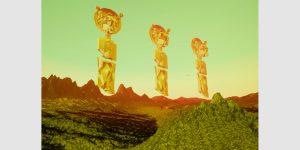
Rio Verde
Cherish Marquez (US)
Rio Verde is a socially conscious video game by Cherish Marquez that explores the healing powers of the desert, as well as themes such as Latinx iconography and mental wellness.
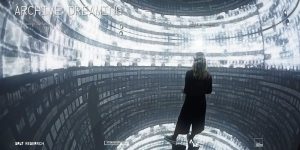
Synesthetic Architecture
Refik Anadol (TR), Kenric McDowell (US)
In Synesthetic Architecture, Refik Anadol (TR/US) and Kenric McDowell (US) take viewers on a journey into artistic and creative practice at the intersection of artificial intelligence, architecture and spatial design. They discuss both Refik’s personal experience of diving into deep learning technologies as a means of artistic expression and the development of this hybrid field over the past years.
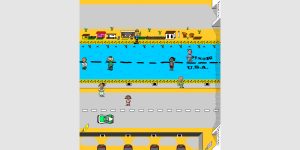
Crosser & LaMigra
Rafael Fajardo (US)
Crosser & La Migra are two video games that represent opposite perspectives on the dynamics at the US-Mexico border, rendered as early arcade graphics and presented as a diptych. Artist and designer Rafael Fajardo is the founding director of SWEAT, a loose collaborative that makes socially conscious video games in order to explore the poetics of interactivity, critique and deploy electronic media, and comment on cultural realities.
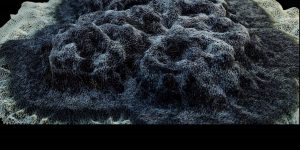
Fermenting Futures: BioArt and Yeast Biotechnology in Uncertain Times
Anna Dumitriu (UK), Alex May (UK)
"Fermenting Futures" ist ein Projekt der Künstler*Innen Anna Dumitriu und Alex May, das die Bereiche BioArt, synthetische Biologie, digitale Technologien, Skulptur, Kunsthandwerk und Installation erforscht und die Bedeutung der Hefe-Biotechnologie aus kultureller Perspektive untersucht.
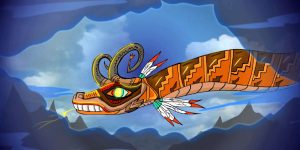
Frontera!
John Jota Leaños
Leaños directed and produced the animated documentary, Frontera!, retelling the history of the 1680 Pueblo Revolt in New Mexico. The film has been supported by a 2012 Guggenheim Fellowship in Film and Video and a National Association for Latino Arts and Culture Grant, among others. Collaborators: Conroy Chino (Acoma Pueblo), Warren Montoya (Santa Ana Pueblo, Tamaya and Santa Clara Pueblo, Khapo Owinge’), Lee Moquino (Santa Clara Pueblo, Zia Pueblo, Apache/Yaqui), Aimee Villarreal, and Cristóbal Martinez (Alcalde).
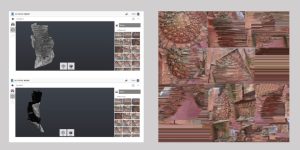
Co\\aborative Conc(re)te
Gareth Proskourine-Barnett (GB), Mike Dring (GB), Alessandro Columbano (IT)
Co\\aborative Conc(re)te is an ongoing conversation between the artist collective, C100, and the cityof Birmingham using architecture to examine notions of progress, change, dis-location, and discovering the lost, forgotten and misplaced works reflecting a landscape of continual synthetic flux. When a building is demolished, it becomes a ghost. Its image haunts us, reminding us of a future that never came to be. But what if previous versions of the city remain in the digital realm. Our events explore what happens when a building that no longer occupies physical space lives on within digital networks - when it ceases to exist the physical matter its occupation of virtual territories take on an added significance? We (re)construct, (re)imagine and (re)build an idea of the future, for temporary gatherings in galleries or other unexpected venues as we work across sound, digital imagery, printed works, moving images, and structural models. Using adapted archival material and found soundscapes, C100 celebrates a collective vision for the future city, one lost to the bulldozer, the other emergent from the dust.
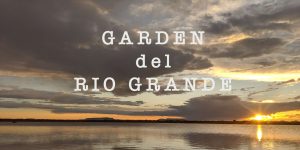
Emilie Trice & LAST/RESORT present Garden del Rio Grande
LAST/RESORT (US)
Garden del Rio Grande pays homage to the geographic region around the Rio Grande River, which runs from central Colorado along the U.S./Mexico border to the Gulf of Mexico. Our garden contemplates how technology can reconnect us to the land and amplify indigenous voices, while questioning to what extent can art and design fortify sustainable ecologies. Through emerging technology we seek to reverse-engineer the past in order to reimagine the future.
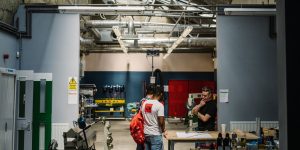
UrbanM
STEAMHouse, Birmingham City University (UK)
Urban M is an Interreg Europe project led by Birmingham City University, its aim is to support nine European Cities to develop their city and regional innovation policies to help local makerspaces thrive.
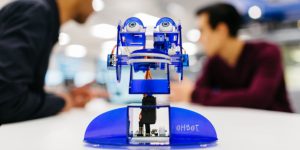
The STEAMhouse Approach
STEAMhouse, Birmingham City University (UK)
STEAMhouse is a centre for innovation, creative thinking, prototyping and business development. STEAMhouse supports entrepreneurs, sole traders, companies and citizens to build their businesses, develop products and services and bring new ideas to life. The centre supports both city and business challenges and takes an interdisciplinary approach to these issues. STEAMhouse is a partnership between Birmingham City University and Eastside Projects and funded by the European Regional Development Fund., It aims to drive innovation and research for major long-term growth across the region.
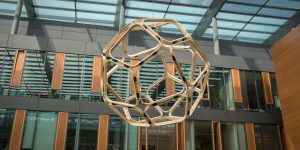
BenDit
Technische Universität Dresden (DE)
BenDit is a structure from bent wood, created at the TU Dresden as a demonstrator within the European Interreg project Adhesive Free Timber Buildings (AFTB). It has a diameter of about 3 meters and is designed to hang in the atrium of the Biology building. BenDit is a model of the deltoidal icositetrahedron. 24 identical kite-like wooden frames are connected along the edges.
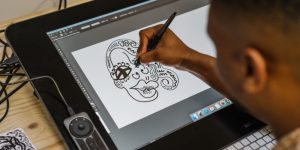
STEAM INC
Ars Electronica (AT), Science Gallery at Trinity College Dublin (IE), Birmingham City University (UK), University of Arts London: Central Saint Martins (UK), Aalto University (FI), Technische Universität Dresden (DE), University of Amsterdam (NE)
Rapid change requires rapid adaptability, and our capacity to adapt is informed by our ability to integrate diverse approaches. To accommodate this, higher education has needed to transcend an historically embedded approach to learning that has seen different types of knowledge segregated across disciplinary silos. Policy ambitions throughout Europe and across the world have recognized that knowledge in science, engineering and mathematics need to be nurtured to engage with rapid advances in technology. However, it has also become increasingly evident that art as a unique and adaptive form of knowledge should also be combined with our approach to STEM education. Art thinking offers a holistic way of understanding complex connections and can act as a translator between different communities of knowledge. By including art, STEAM education ensures that there is an interdisciplinary switchboard operator actively integrating different approaches to solving the same problems we face today.
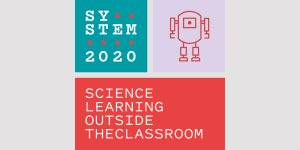
SYSTEM2020 Learner's Perspectives
Discover how learners involvement with out of school science education has allowed them to expand their knowledge and adapt with the changing world around them.
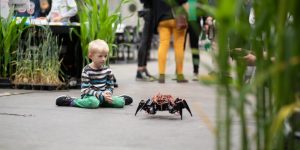
OSHub.Network
Ars Electronica (AT), Science Gallery at Trinity College Dublin (IE), Impact Hub Siracusa (IT), La Casemate (FR), Onl'Fait (CH), SCIENCE IN (CZ), Município de Figueira de Castelo Rodrigo (PO), SciCo (GR)
The pace of change in society - from technological innovation to global interconnectedness - is rapidly increasing and has fundamentally altered the way people live, work and learn. Moreover, the societal challenges of the 21st century bring with them an urgent need to integrate the knowledge and expertise of different societal actors, and to develop meaningful and inclusive ways of connecting schools, universities, enterprises, civil society, governments and local communities using more innovative, efficient and open methodologies.

SYSTEM2020 Map
Science learning initiatives outside the classroom are crucial in educating and forming Europe’s next generation of researchers and innovators. By gaining insights into these initiatives all around Europe SySTEM 2020 wants to gain a better understanding of the types and kinds of programmes in operation, learn from each other and collaborate to be able to respond to challenges ahead. The SySTEM 2020 map is an online visualisation tool where over 2000 STEAM initiatives or projects are mapped providing a network of organisations for you to connect with. For the general public it offers a way to find informal learning initiatives in their area. For organisations it offers the opportunity to get connected and gain visibility as a collective community within Europe.

Ars Electronica AIxMusic Online Hackathon: Final Presentations
Annelies Termeer (NL) moderator + Participants
Anlässlich des ersten Online-Festivals veranstaltet Ars Electronica seinen ersten internationalen AIxMusic Hackathon im Rahmen des AIxMusic Festivals 2020.
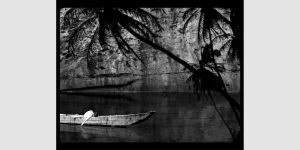
Falling Up Exhibition
re.riddle, California, San Francisco (US)
Amidst riots and racial tensions, divisive political rhetoric and a global pandemic, the past half year has been a time of turbulent uncertainty. These acute ruptures and moments of pain, conflict and unknowingness have inadvertently led to a mode of seeing our former and current realities anew, which may more or less best be described as “surreal”.
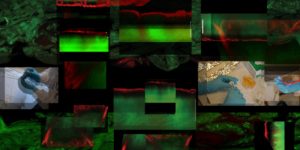
Demystifying Arts and Sciences through Playful Creative Technologies
Jo Berry (UK)
Jo Berry has implemented playful, creative methodologies to seek art's value, purpose and interpretational impact when it takes as its start point advanced imaging and microscopy. Her claim is that art can be a significant contributing factor to new directives in advanced imaging and microscopy; its impact intensified through applying play as a method to interrogate ideas, processes and outcomes. She offers a new model of research, which engages play as the critical driver to accomplish a more agile, accessible and open method of examining science via a different set of criteria. This hypothesis is based on my own prior experience as a researcher working directly with scientists and experiencing scientific method where I became convinced that artists should be central to scientific inquiry not just working on the periphery. As it would seem there needs to be a paradigm shift within science which, she claims, can be activated through examining play through art and identifying its effect on aspects of culture, creativity and aesthetics.
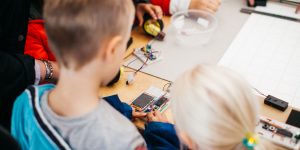
STEAM alignment across different educational levels at the University of Amsterdam
University of Amsterdam (NL)
This approach to STEAM education covers two programmes taught at the University of Amsterdam (UvA): the BSc Information Studies (three years) and the MSc Information Studies (one year) which are both located in the Computing Department. The approach provides students on both levels with room for exploration of the field based on shared activities mainly through project work. The aim is to provide students with technological, human and societal insights (theories, models, system implementations) so that they can comprehend and place themselves in the field of information science. The programmes are aimed at students from a mixture of subject backgrounds but joined in the desire to solve complex societal problems, using ICT and digital media.
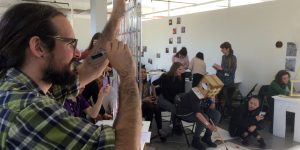
A Hybrid STEAM approach from the MA Art and Science at Central Saint Martins
University of the Arts London: Central Saint Martins (UK)
The MA Arts and Science (MAAS) is a two-year Master's programme, founded in 2011, recruiting students from different disciplinary backgrounds across the arts, sciences and humanities. The course builds a STEAM community utilising a shared studio space as a resource and setting for collaboration and cooperation. The philosophy of the course brings together different knowledges and aims to create a non-hierarchical platform for students, disciplines and methods.
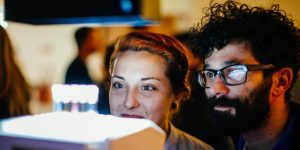
STEAM Approaches at Science Gallery at Trinity College Dublin
Science Gallery at Trinity College Dublin (IE)
Science Gallery Dublin was founded at Trinity College Dublin, the University of Dublin in 2008, with a mission to ignite creativity and discovery where science and art collide.


